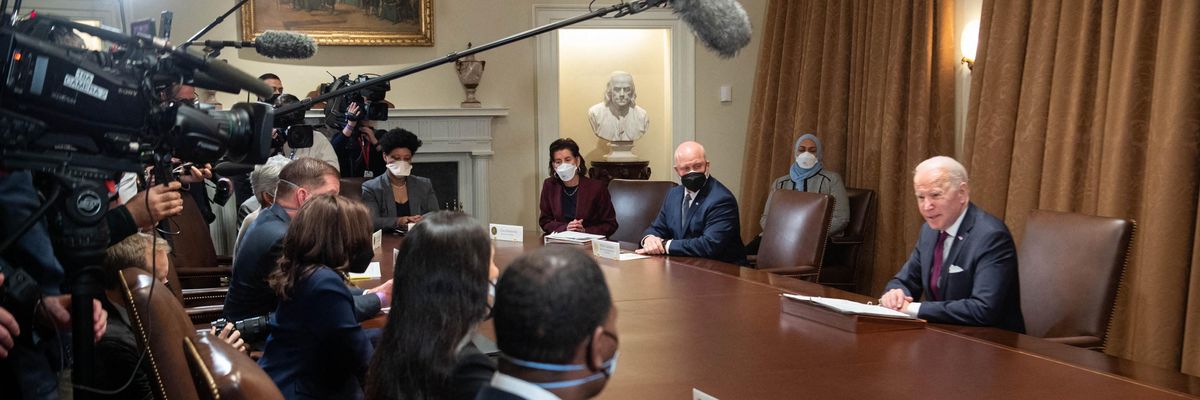As Moscow signals its apparent readiness for war over Ukraine, the U.S. government seems determined to ignore Russia's not-so-ridiculous concerns over the military alliances of neighboring states and the prospect of nuclear weapons on its borders.
Avoiding war doesn't necessarily mean that the rights and interests of smaller nations have to be abandoned. But practically speaking, the path to peace does require mutual accommodation by all parties.
Should Americans worry about our country inserting itself into another war?
Ukraine is far away, and Russia isn't directly threatening us. Nonetheless, the U.S. intends to arm and support Ukraine if it comes to war, and there can be no certainty whether a proxy war might escalate. Nuclear powers need to tread carefully around each other.
Let's look at the U.S. response to Russia's insistence that Ukraine not join NATO, the U.S.-dominated military alliance that Russia wants to keep out of its immediate periphery.
Washington rejects that demand. The U.S. representative at talks with Russia recently declared it to be among America's "bedrock principles" that there be "no tolerance of overt or tacit spheres of influence, no restrictions on the sovereign right of nations to choose their own alliances."
Contrary to these noble statements, America has long deemed it a bedrock principle that the United States has a sphere of influence: all of North and South America!
Remember the "Monroe Doctrine" you learned about in high school history? In 1823, President James Monroe warned European nations that the entire western hemisphere was our turf and that they entered it at their risk.
The nature of that risk became all too clear in 1962, when Cuba tried to exercise its "sovereign right" to choose its own alliance.
After the U.S. tried to overthrow its government, Cuba chose to ally with the Soviet Union and let the Russians put nuclear missiles in Cuba. The U.S. response was to bring the world to the brink of nuclear war rather than accept the Soviets' move into our sphere of influence.
So much for "bedrock principles."
The U.S. now proclaims it a "bedrock principle" that Ukraine, at least, can make an alliance with whomever they want, Russian sensibilities be damned. But suppose Mexico decided to join the Collective Security Treaty Organization, the Russian-sponsored counterpart to NATO?
Can anyone imagine the U.S. would quietly acknowledge Mexico's right to do so?
The fact that a country considers it a prerogative to limit the destiny of its neighbors doesn't make that right, whether it's the U.S. or the Russians doing it. Ukraine has the right to defend itself, the right to conduct its internal affairs as it pleases, and the right not to be dismembered by a powerful neighbor.
However, it's a sad reality of international affairs that powerful nations tell themselves that they (but no one else) have the right to meddle in the affairs of weaker neighbors.
Avoiding war doesn't necessarily mean that the rights and interests of smaller nations have to be abandoned. But practically speaking, the path to peace does require mutual accommodation by all parties.
Finding the right accommodation may not be easy.
It is not unreasonable for the Russians not to want a hostile alliance--and potentially nuclear weapons--along their border. But Russia's key interests do not reasonably include dismembering Ukraine.
Meanwhile the U.S. is not crazy for wanting Ukraine to be free to connect economically and culturally with Western Europe. But it's not a key interest, requiring a confrontation between nuclear-armed states, to insist that Ukraine has the "right" to join NATO.
Peace cannot be found if the U.S. relies on the self-righteous assertion of principles that our government refuses to apply to itself.




